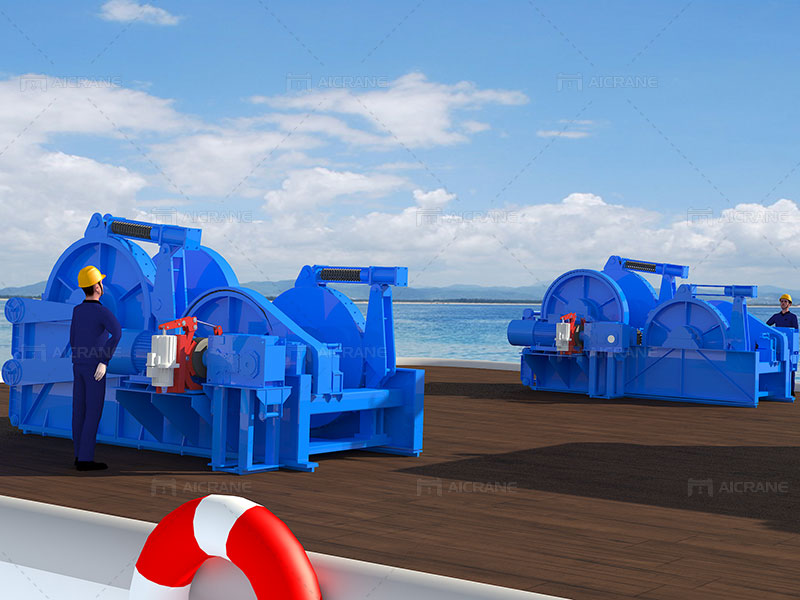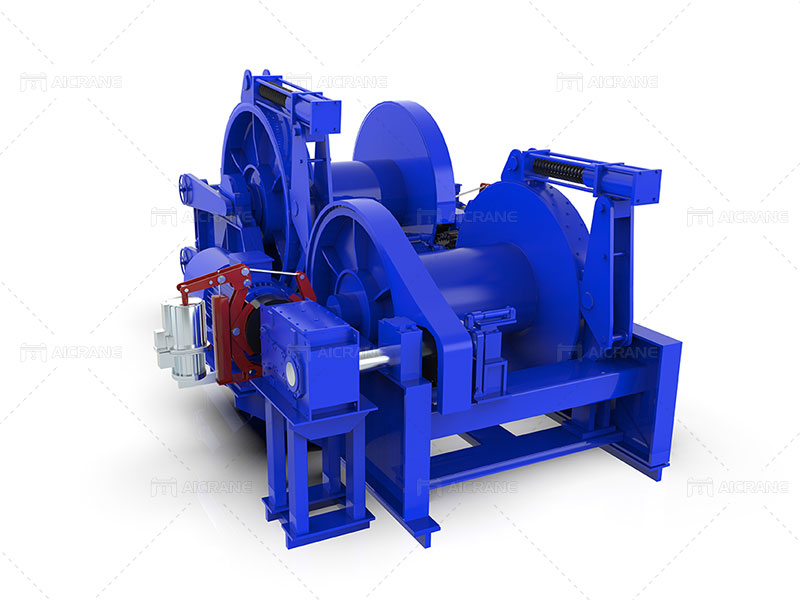Marine electric winches are essential tools in the maritime world, playing a vital role in a wide range of applications, from lifting anchor chains on cargo ships to maneuvering fishing nets on fishing vessels. These powerful machines are indispensable for seafarers, making it possible to handle heavy loads with ease, efficiency, and safety. In this article, we will explore the world of marine electric winches, delving into their construction, applications, and the benefits they offer to the maritime industry.
The Basics of Marine Electric Winches
A marine electric winch, as the name suggests, is an electrically powered device used to hoist, lower, or pull objects in marine environments. These marine electric winches for sale are designed to withstand the harsh conditions of the sea, making them an essential part of any vessel’s equipment. They come in various sizes and capacities, depending on the specific needs of the ship and its intended applications.

Key Components of a Marine Electric Winch
Motor: The heart of any electric winch is its motor. Marine electric winches typically use high-quality electric motors that can operate efficiently in damp and saltwater environments. These motors are essential for providing the power necessary to operate the winch.
Drum or Cable Drum: The drum is the part of the winch around which the cable or rope is wound. It is where the load is attached, and it’s essential for the winching operation. Marine electric winches may have a single or multiple drums, depending on their design and purpose.
Gearbox: The gearbox is responsible for controlling the winch’s speed and torque. It allows the operator to control the rate at which the cable is wound or unwound. Gearboxes are often equipped with various speed settings to accommodate different requirements.
Control System: Marine electric winches feature sophisticated control systems that can be operated remotely, ensuring the safety of the crew. These control systems are designed to prevent overloading and provide precise load control.
Applications of Marine Electric Winches
Anchor Handling: Cargo ships, oil tankers, and other large vessels rely on marine electric winches to handle their heavy anchor chains. These winches are powerful enough to hoist the anchor and chain effortlessly, making the task of anchoring and unanchoring much more manageable.
Trawling and Fishing: Fishing vessels often employ marine electric winches to handle nets, lines, and trawls. These winches help to efficiently manage the catch and deploy fishing gear with precision.
Lifting and Cargo Handling: In port operations, marine electric winches are used for lifting and moving cargo onto and off ships. They are instrumental in loading and unloading containers, heavy machinery, and other goods.
Mooring Operations: Securing a vessel to a dock or another vessel is a crucial task. Marine electric winches assist in mooring operations, ensuring the ship remains safely anchored in place.
Lifeboat and Rescue Boat Handling: Electric power winches are often used to lower lifeboats or rescue boats into the water quickly and safely in emergency situations.

Benefits of Marine Electric Winches
Efficiency: Marine electric winches offer a high level of efficiency, allowing for quick and precise handling of heavy loads. This efficiency is especially critical in time-sensitive operations.
Safety: Safety is paramount in the maritime industry, and electric winches come equipped with advanced safety features such as overload protection and emergency stop functions. These features protect both personnel and equipment.
Reliability: Electric winches are known for their reliability and durability, making them an ideal choice for marine applications. They are designed to withstand the harsh marine environment, including exposure to saltwater and adverse weather conditions.
Precise Control: The control systems of marine electric winches enable operators to maintain precise control over the load. This is essential in delicate operations like launching lifeboats or handling fragile cargo.
Reduced Manual Labor: Electric winches significantly reduce the need for manual labor, reducing the physical strain on crew members and increasing productivity.
Maintenance and Care
Proper maintenance of marine electric winches is essential to ensure their longevity and safe operation. Regular inspections, cleaning, lubrication, and electrical system checks are necessary to prevent breakdowns and ensure that the winches are ready for use at any time.
Lubrication: Regularly greasing the moving parts of the winch, such as the drum and gearbox, is essential to prevent friction and wear. Lubrication also helps protect against corrosion in the marine environment.
Electrical System Checks: Regularly inspect the electrical components of the marine winch, such as cables, connectors, and switches, to ensure they are in good working condition. Any signs of wear or damage should be addressed promptly.
Load Testing: Periodic load testing is necessary to ensure the winch’s capacity remains within safe limits. This is crucial for the safety of the crew and the equipment.
Cleaning: Keeping the winch clean and free from saltwater and debris helps prevent corrosion and damage. Regular cleaning also makes it easier to identify potential issues during inspections.
Conclusion
Marine electric winches are a cornerstone of maritime operations, providing power and precision in handling heavy loads and equipment. Their versatility and reliability make them indispensable tools for various applications, from anchoring large vessels to managing fishing gear and cargo handling. With advanced safety features, efficient operation, and robust construction, these winches continue to play a vital role in the maritime industry, helping ships navigate the oceans safely and effectively. Proper maintenance and care are essential to ensure the continued operation of marine electric winches, and their enduring presence at sea.
